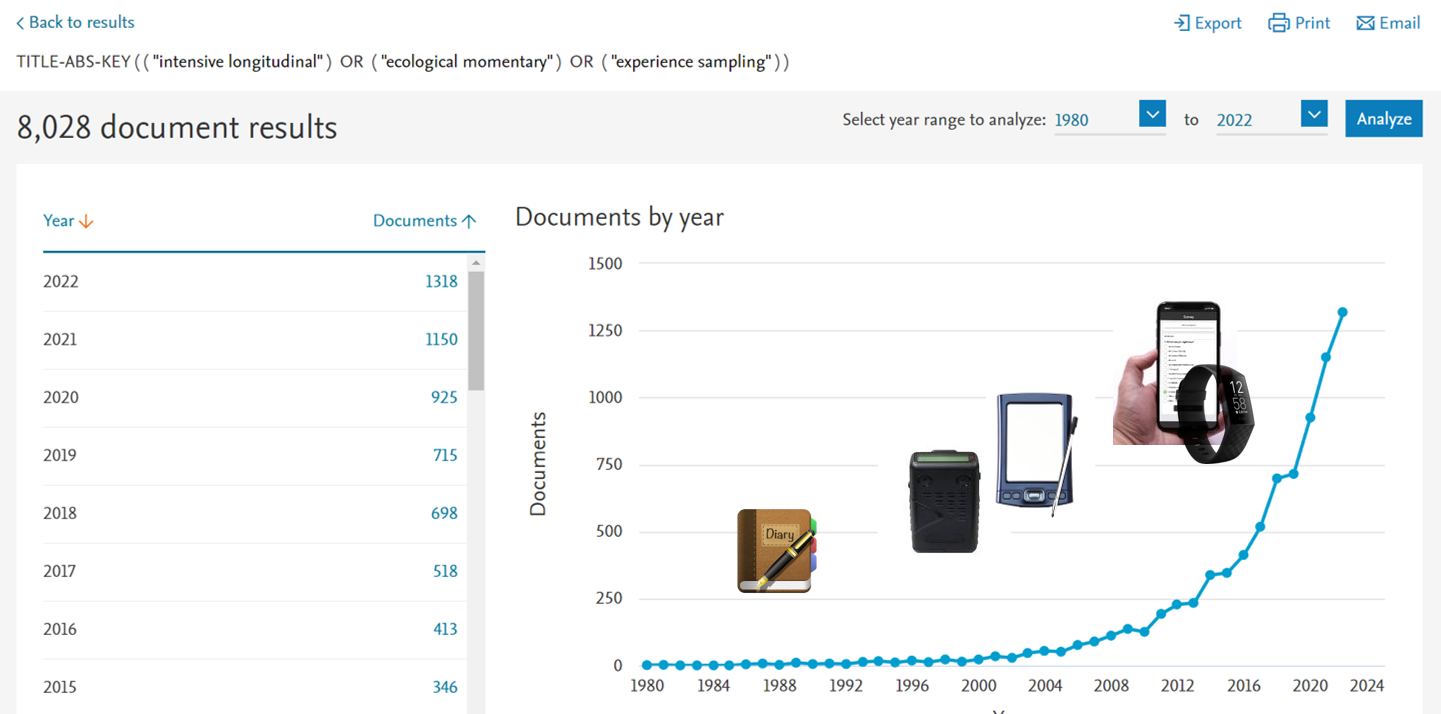Community building
Building a strong community is paramount in any field, and data science is no exception. Community building fosters knowledge sharing, collaboration, and growth, creating an environment where individuals can thrive and collectively push the boundaries of their expertise.
There are numerous existing communities that offer unique perspectives and opportunities for connection. These communities bring together data scientists from diverse backgrounds, experience levels, and specializations, providing a rich tapestry of ideas and insights.
In addition to our broad data science community on Teams, we also curate a list of topical communities tailored to specific areas of data science used in the social sciences. Whether you are interested in machine learning, natural language processing, network analysis, or any other niche, there is a community waiting for you. These specialized communities not only offer targeted discussions and resources but also facilitate networking with experts beyond your particular field of application.
By actively participating in these communities, you can leverage the collective intelligence of the data science community, gain valuable insights, and forge meaningful connections. So, don't miss out on the opportunity to join these vibrant communities. Immerse yourself, contribute your knowledge, learn from others, and together let's shape the future of social data science!
BDSi Data Science Community
Teams Channel
Part of supporting data science in the long term is building a community of data scientists and researchers interested in data science. Within the community we can share ideas, questions, and expertise with eachother.
The BDSi Data Science Community is free to join for anyone affiliated with the University of Twente, or involved in a research project of the University of Twente.
Do you have a University of Twente account?
YesYou can instantly join the BDSi Data Science Community team by following these steps:
- Open Teams
- Go to the "Teams" tab
- Make sure you're on the "all teams" page
- Click "Join or create team"
- Use the code
t1p0d1d
NoYou can apply to join the BDSi Data Science Community team using the link below. We'll let you in as soon as possible.
Join the Community
Welcome to the community!
Don't forget to introduce yourself.Topical Communities
There are a number of data science related communities active across BMS and the University of Twente.Causal Community
Just as a keen observer uses various methods to study human experiences, thoughts, and behaviors, causal inference provides the tools to uncover the hidden dynamics of cause and effect relationships. This powerful approach enables us to transcend mere correlations and understand the true mechanisms driving outcomes.
Causal Inferences are applied into various fields which helps to understand the why of certain outcomes and guide decision making processes.
Some Advantages of Causal inference can be:
- Accurate decision making
- Reduced confounding factors
- Understand complex systems
Whether you’re a curious researcher, a dedicated student, or a professional navigating the complexities of data, our resources and insights are tailored to empower you with the tools to master causal inference.

Extended Reality (XR)
Extended Reality (XR) is a term that encompasses Virtual Reality (VR), Augmented Reality (AR), Mixed Reality (MR), and sensory technologies, creating immersive digital experiences that blend the virtual and physical worlds.
The BDSI XR Community aims to establish a collaborative platform for researchers and XR enthusiasts to come together.
We plan to host regular gatherings and on-site visits where community members will take on data related challenges such as:
- Analyze user behavior, such as hand movements, gaze tracking, and response times
- Handling sensor data and neural data in conjunction with events in virtual environments
- Investigating the impact of sensory feedback (including tactile, odor, and sound)
- Analysis of eye movements in dynamic visual environments
- Representing multidimensional data in a 3D space
Our core objective is to use these data-driven activities to advance our understanding of XR technology and contribute to solutions that address societal, cognitive, and environmental challenges using XR applications.
To become part of the BDSI XR Community and receive new about the events, please fill out the registration form.
Intensive Longitudinal Methods
Intensive Longitudinal Methods (ILMs) allow to study people’s thoughts, behaviours, feelings and physiology as they occur in real daily life using either diaries, mobile apps and/or (wearable) sensors. Measurements can be both active (self-reports) or passive (e.g., acoustic sampling, GPS, actigraph, HR).
ILMs are referred to by different names, including experience sampling, ecological momentary assessment, ambulatory assessment, real-time data capture. What all ILMs have in common is intensive repeated (or even continuous) measurement of a set of variables over several days, weeks, or even months.
Advantages of ILMs over traditional observational surveys or lab studies can be:
- More realistic conditions (real-time and real-life)
- More precise and less biased measurement (no recollection bias)
- Insight into the relevance of fluctuations in variables and (changes in) context
- Within-person (micro-level) processes
- Temporal nature of associations
ILMs are increasingly feasible and popular in research due to the fast developments in and penetration of smartphones and wearables.

Machine Learning Community
In the world of data science, machine learning works like an experienced observer who uncovers important insights from data, but on a bigger scale and with more accuracy than human analysis can achieve.
Machine learning can be applied to multiple fields, such as predictions, decision making, and personalization of content.
The benefits of using machine learning tool can be:
- Unravelling hidden patterns
- Adapting to change
- Constant learning, the more data the more accurate
Whether you’re a data expert, someone who loves learning new things, or a professional using data in your job, we’re here to help you learn all about machine learning. Together, we’ll explore how it works and what it can do. Join us to talk, question ideas, and use machine learning to make things even better.
Network Science Community
All interconnected systems like the economy, the brain, social groups, enterprises or the internet share universal properties. With the help of graph theory and social network analysis we can uncover these properties, understand the spread of misinformation or emotions, find out who is in control of an organisation or how resilient a network is against external threats.
Network analysis is all about – understanding the connections and relationships between different things, whether they’re people, websites, or even molecules. It’s drawing a map of how things are linked together and how they influence one another.
The benefits of analyzing data with this method:
- Visualize connections
- Understand the influence
- Detect patterns
- Spot key players
Together, we’ll unravel the intricate web of relationships and uncover the stories they tell. Let’s discuss, question, and utilize network analysis to gain a deeper understanding of the world around us.


Reinforcement Learning Study Group
Welcome to our professional learning community dedicated to exploring the exciting field of reinforcement learning (RL). Whether you’re a seasoned academic or just beginning your journey, we’re delighted to have you join us.
What Is Reinforcement Learning?
Reinforcement learning focuses on how agents learn to make decisions by interacting with their environment. Unlike supervised learning, where explicit labels guide training, RL agents learn through trial and error, aiming to maximize cumulative rewards. It’s akin to teaching a dog new tricks, but with algorithms!
Core Resources
- Reinforcement Learning: An Introduction (Second Edition)
- Our foundational text is the second edition of “Reinforcement Learning: An Introduction” by Richard S. Sutton and Andrew G. Barto. This comprehensive book provides clear insights into RL’s key ideas and algorithms.
- Google DeepMind’s Lecture Series on YouTube
- DeepMind’s lecture series covers everything from RL basics to cutting-edge research. These videos complement our reading material and offer practical perspectives.
Community Meetings
We meet every two weeks, alternating between Tuesday afternoons and Thursday lunchtime sessions. During these gatherings, we delve into RL concepts, discuss recent research, and share insights. Expect engaging discussions and thought-provoking questions.
Who Should Join?
Our community is open to students, staff, researchers, and teachers affiliated with the University of Twente. If you’re part of this vibrant academic ecosystem, we invite you to join us! Whether you’re a seasoned researcher or a curious student, our RL discussions will enrich your understanding.
If you’ve dabbled in machine learning (ML) but haven’t explored RL extensively, this community is perfect for you. We’ll bridge the gap between ML and RL, demystifying algorithms and techniques.
Participation requires dedication—approximately two hours per week for homework, reading, and attending sessions. Our friendly atmosphere and collaborative spirit will make the journey enjoyable.
So, pack your lunch, fire up your curiosity, and let’s explore the world of reinforcement learning together!
Text Analysis
The field of natural language processing has been revolutionised in the last years. With the Transformer Model, methods for text classification, summarisation, translation and generation have become incredibly powerful. The most prominent example of which is chatGPT. Researchers who work with text data can benefit from this development.
It’s like having a magnifying glass that uncovers the layers of meaning, sentiments, and patterns hidden within text, transforming it into a source of valuable insights.
Some benefits of using Text analysis method:
- Uncovers patterns
- Qualititative insights from qualitatitive data
- Use of Big Data
- Sentiment identification
Our community invites you to step into the world of text analysis, where we unravel the language’s secrets. Whether you’re a curious learner, a researcher, or a professional dealing with text-based data, our resources and insights are designed to guide you through the intricate world of text analysis.
Twente R User Group
YarrrrR!
insert description here
Missing a community?
Would you like to start a community around data science in your research? We can help get you in touch with others doing similar research, and support all the organizational requirements so that you can get right to the content.
Do you know of a community that is (at least somewhat) related to data science at BMS that isn't on the list yet? We'd love to add it to the list!
Please get in touch through bdsi@utwente.nl or come by during our walk-in hours.
 Anna Machens
Anna Machens Peter ten Klooster
Peter ten Klooster Karel Kroeze
Karel Kroeze